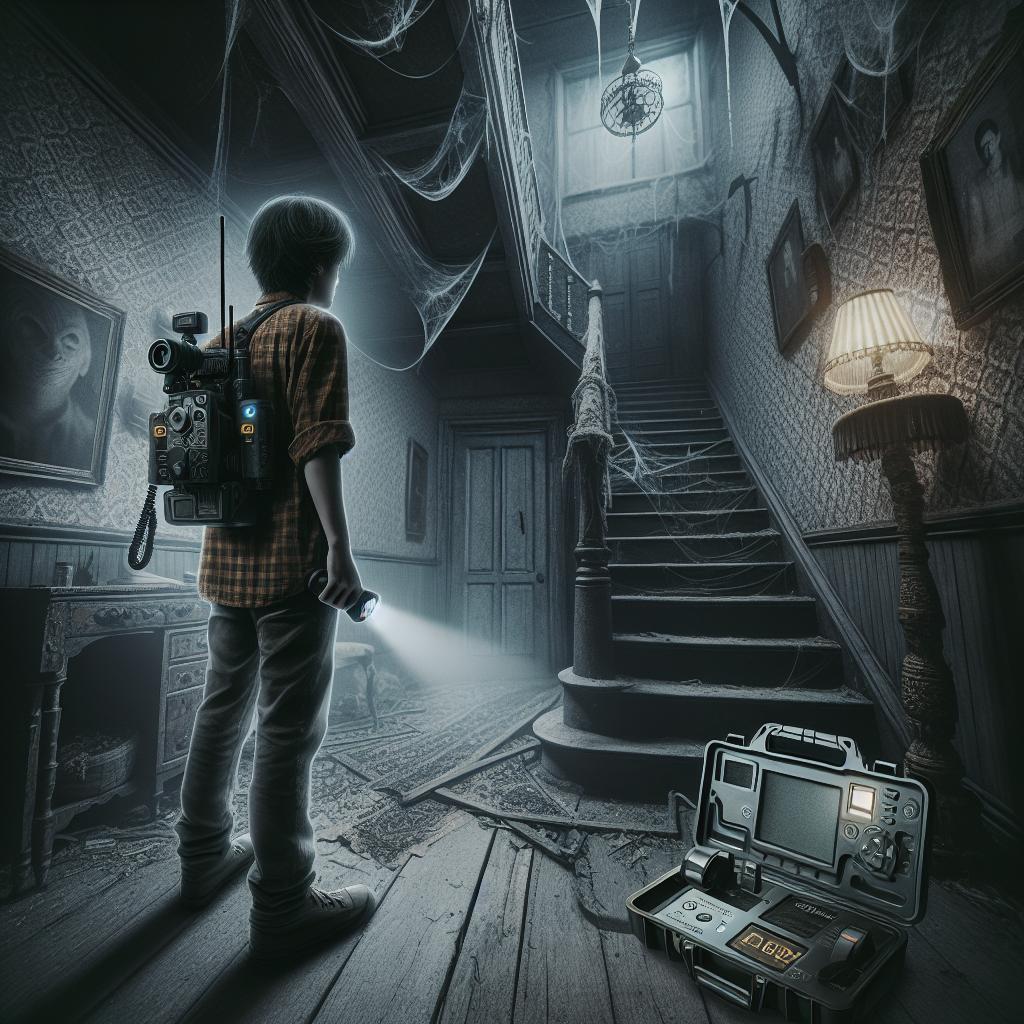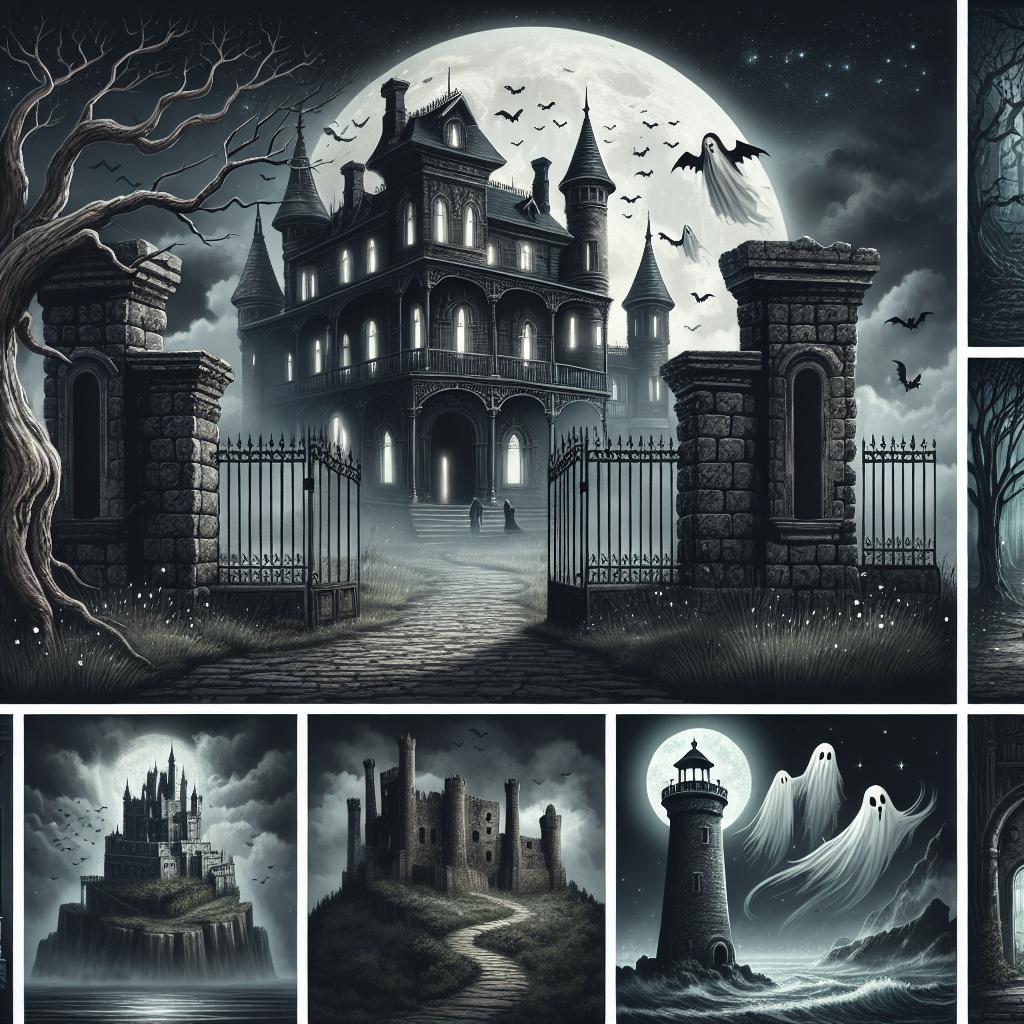“`html
The Role of Intuition in Paranormal Investigations
Abstract
Intuition, often described as a gut feeling or sixth sense, plays a critical role in many aspects of human decision-making. In the realm of paranormal investigations, intuition is often valued as an essential tool for discerning the unseen and unknown. This article explores how intuition integrates with scientific approaches in paranormal research, offering potential insights into phenomena that often elude empirical explanation. Through the analysis of various studies, we aim to bridge the gap between intuitive insights and scientific validation in the field of paranormal investigation.
Introduction
Paranormal investigations often straddle the line between science and the unexplained, leaving many to rely on their intuitive senses in pursuit of answers. This blog post delves into the role intuition plays in such investigations, presenting findings from several studies that examine how gut feelings influence perceptions and decision-making in the context of the supernatural. By exploring these studies, we aim to understand how intuition complements empirical methods, potentially guiding investigators toward more profound insights in their quests for understanding phenomena beyond the ordinary realm.
Cheating at Cards
In the world of card games, intuition can sometimes provide players with an edge, allowing them to make seemingly improbable guesses based on subtle cues. Similarly, paranormal investigators often report using intuition to ‘sense’ or ‘feel’ the presence of otherworldly entities or energies.
This concept parallels the anecdotal experiences that many card players recount—an inexplicable knowledge of the cards held by opponents or the likelihood of an imminent win. In paranormal scrutiny, this intuitive perception can lead to significant breakthroughs where empirical tools might falter.
Despite skepticism from staunch empiricists, the reliance on intuition in both scenarios showcases its valuable role in places where logical reasoning meets its limitations, urging investigators to trust their gut as a supplementary tool in their investigations.
More Questions than Answers
Subjects
Paranormal investigations, much like queries into cheating at card games, often pose more questions than they answer. For each successful interpretation or validation of an intuitive guess, numerous others remain unanswered, highlighting the enigmatic nature of both intuition and the unknown.
Intuition raises important questions about human perception and cognitive processing. How do these instincts form, and why do they sometimes point toward accurate conclusions about paranormal phenomena or even unlikely events in card games?
Understanding these processes provides an avenue for studying how intuitive thinking can be harnessed effectively, especially in contexts where traditional empirical methods do not provide clear insights, thereby emphasizing the need for further research and exploration.
Study 1: The Way to Santiago
Participants
This study focused on individuals embarking on the Camino de Santiago, a spiritual pilgrimage that often involves intuitive decision-making due to its unpredictable nature. Participants recounting their experiences reported sensing a guiding force or presences along the way, suggesting intuition played a significant role in navigating their journey.
The sample consisted of diverse individuals with varying degrees of intuition awareness. The goal was to understand how intuition manifested in decisions and perceived encounters with the paranormal, offering unique insights into how travelers understood and interacted with unexplainable experiences.
Collecting testimonies and reflective analyses, the study provided a qualitative look at the commonality of intuition-driven experiences during this pilgrimage and highlighted similarities in experiences across different cultural backgrounds.
Study 2: Working Memory Load and Supernatural Attributions
Participants
This study examined how working memory load affects the attribution of supernatural explanations to ambiguous events. Participants involved were subjected to memory tasks to increase cognitive load, observing how their intuitive responses altered when confronted with potentially paranormal occurrences.
Participants included individuals from varied educational backgrounds, ensuring a wide range of cognitive abilities for comprehensive analysis. By focusing on cognitive load, the study aimed to decipher how mental strain influences intuitive judgments or misconceptions in paranormal assessments.
Results indicated a significant correlation between high working memory load and the propensity to perceive supernatural events, reaffirming the impact of intuition during cognitively demanding situations.
Study 3: The Neural Enhancement of Cognitive Inhibition
Participants
This study explored how enhancing cognitive inhibition affects intuitive insights associated with paranormal thoughts. Participants underwent brain stimulation exercises intended to boost cognitive inhibition processes to see how this modification influenced their intuition regarding the supernatural.
The participant group was composed primarily of individuals with prior interest or experiences with the paranormal, providing a baseline understanding of how intuitive abilities function prior to neural enhancement scrutiny.
The study findings suggested that heightened cognitive inhibition led to more refined intuitive insights, promoting clearer discernment amid potentially paranormal scenarios, thereby reinforcing the idea of enhanced intuition through cognitive training.
Results
Collectively, the studies underscore the integral role of intuition in paranormal investigations and related cognitive scenarios. Intuition emerges as a pivotal tool, enabling individuals to approach unexplained phenomena with an open, perceptive mindset that complements empirical methodologies.
Findings indicate a robust link between intuition and cognitive processes like memory load and inhibition, demonstrating how external variables can influence intuitive perception in supernatural contexts.
Moreover, the studies emphasize the potential for developing intuitive faculties through cognitive practices, offering investigators a means to fine-tune their innate abilities, enhancing interpretation and understanding within paranormal realms.
General Discussion
The exploration of intuition in paranormal investigations reveals a nuanced relationship between instincts and empirical inquiry. While intuition can guide researchers through the often ambiguous nature of supernatural phenomena, it also serves as a starting point for hypothesis development.
Recognizing the signals that intuition provides can lead to targeted investigations and experiments, thus enriching both individual and collaborative efforts to unravel these mysteries.
As we advance, awareness and refinement of intuitive skills should be promoted, giving paranormal investigators a valuable edge that can complement data-driven analyses in revealing the unknown.
Methods
Study 1
The method involved qualitative interviews and self-reported experiences from participants on a spiritual pilgrimage. Data was analyzed for common intuitive experiences and their impact on decision-making.
Study 2
Participants were subjected to working memory load tasks followed by the presentation of ambiguous events to measure the impact on supernatural attributions. Quantitative data were collected and analyzed statistically.
Study 3
Methodology included applying brain stimulation to enhance cognitive inhibition when confronted with supernatural cues. Observations of intuitive thought post-stimulation formed the basis of the study outcomes.
References
The references constituted academic journals, articles, and published studies on intuition, cognitive processes, and paranormal phenomena, providing a comprehensive landscape for the theories and findings presented.
Acknowledgements
This article acknowledges the contributions from participants, researchers, and all those who provided insights into the studies and shared their knowledge on intuitive cognition and paranormal investigations.
Author Information
Authors and Affiliations
Lucas Martin, Communications and Journalism Graduate, [University Affiliation].
Contributions
Lucas Martin conceived, researched, and authored the article.
Corresponding Author
Lucas Martin can be contacted for further information and inquiries via email: lucas.martin@email.com.
Ethics Declarations
Competing Interests
The author declares no competing interests in the research, crafting, and publication of this article.
Additional Information
For more inquiries and supplementary information regarding the studies referenced, please contact the corresponding author.
Rights and Permissions
This article is distributed under the terms of the Creative Commons License, which permits unrestricted use, distribution, and reproduction in any medium, provided the original author and source are credited.
About this Article
Cite this Article
Martin, L. (2023). The Role of Intuition in Paranormal Investigations. [Online Blog]. Available at: [URL].
Share this Article
Readers can share this article through various social media platforms or cite it in related academic and professional works that explore intuition within paranormal contexts.
Lessons Learned
| Study | Key Findings |
|---|---|
| The Way to Santiago | Highlighted the reliance on intuition during spiritually charged journeys, uncovering cross-cultural similarities in intuitive experiences. |
| Working Memory Load and Supernatural Attributions | Revealed intuition’s heightened role under cognitive strain, influencing attributions to supernatural explanations. |
| The Neural Enhancement of Cognitive Inhibition | Demonstrated potential refinement of intuition through cognitive exercises, fostering clearer instinctual insights into the paranormal. |
“`


